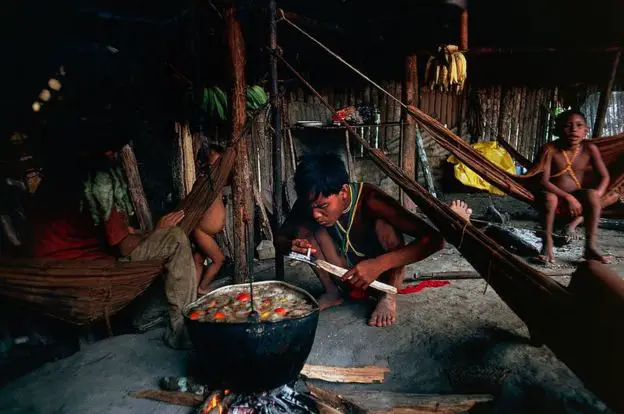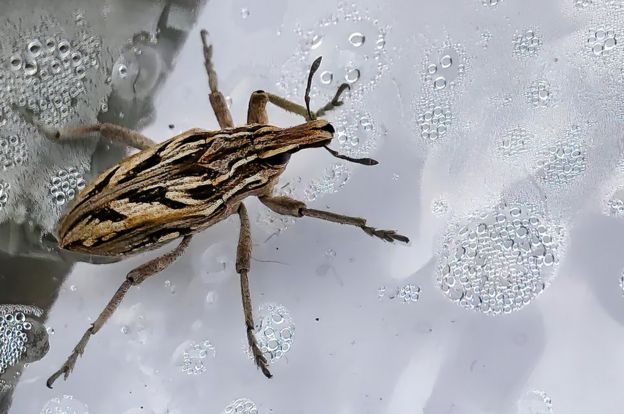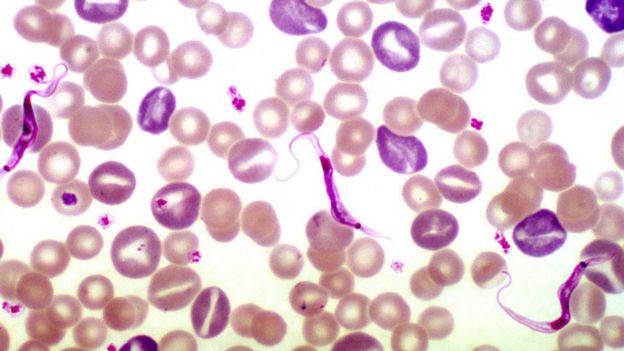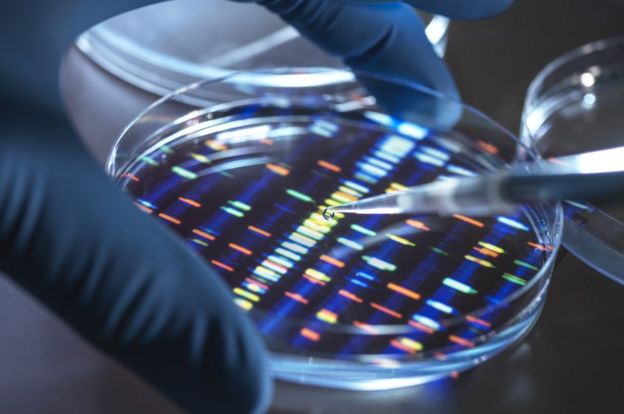For years, it has been known that the native peoples of the Amazon suffer less from Chagas disease, an infection caused by the protozoan Trypanosomacruzi, a single-celled organism that is transmitted by the bite of a bedbug. Scientists have discovered that genetics is one of the possible explanations for this phenomenon: the populations that have inhabited the region -for millennia- have undergone DNA adaptations that allow them to “block” the entry of the pathogen into the cells where the disease develops.
Geneticist TábitaHünemeier, from the Department of Genetics and Evolutionary Biology of the Institute of Biosciences of the University of Sao Paulo (USP), stated that the work began about four years ago and, at first, she had nothing to do with Chagas. “We wanted to know if there was any indication of natural selection among the populations of the Amazon”, she recalled. “It should be remembered that this jungle is a hostile environment, in which it is difficult to survive. The vegetation is very high, there is little light, we have circulation of various pathogens, that is, the first inhabitants of this region had to face a series of challenges”, she added.
Did living in a place like this leave marks in the DNA of the Amazonians? The answer is YES, according to a research recently published in the journal Science Advances, which has Hünemeier as one of the authors.
About the study
In the work, the group of scientists evaluated the genome of 118 people, who are part of 19 different native populations spread throughout the Amazon. This genetic information was compared with that of other peoples in the Americas and Asia. The results show that populations that have lived for millennia in the largest tropical forest in the world present variations in 3 specific genes capable of guaranteeing greater resistance to Chagas disease.
But the researchers went further and decided to see how these DNA changes work in practice. To do so, they selected one of the adapted genes, PPP3CA. In the laboratory, the specialists inserted this common genetic section between the Amazonian populations into heart cells (which are the most affected by the Trypanosomacruzi protozoan). “We saw a 25% reduction in the burden of parasites that managed to enter heart cells with the adapted PPP3CA gene”,Hünemeier said.

That is, the genetic change allows fewer Chagas-causing pathogens to infiltrate heart cells, which, in turn, results in fewer health problems. It is worth remembering that Chagas disease is a disease that tends to remain “asleep” for a long period. A considerable part of those affected only develop the typical symptoms of the chronic phase, such as heart complications, years or even decades after being bitten by the insect.

Hünemeier pointed out that the experiments carried out recently in the laboratory corroborate what was observed in the field. “When we looked at the data on Chagas disease, the Amazon was basically an epidemiological vacuum, with very few or no cases in some regions”,she said. “One of the hypotheses that tried to explain this is the type of common dwelling there, which would make contact with the insect difficult. But that didn’t seem to be enough to fully understand the situation. Now we have detected a genetic association that seems to contribute to this greater protection”, she pointed out.
Unprecedented discovery
The recently published research describes the first example in the Americas of pathogen-influenced natural selection among humans. In the world, the phenomenon was only observed in 4 other circumstances.
The most famous of these is resistance to malaria among some African populations (who, by this same genetic adaptation, are more prone to developing sickle cell anemia, a disease that affects red blood cells). “We also have the example of African trypanosomiasis, as well as bubonic plague and tuberculosis, both in Europe”, added Hünemeier.
According to the geneticist, the genetic adaptation to Chagas disease began about 7,500 years ago, during the migratory waves that came from Central America and populated South America. “Part of the population went to the Andes and the Pacific coast. The other part went to the Amazon”, she explained.

Currently, the changes in the genes that confer greater protection against Chagas disease are only observed among the Amazonians. Among the Andeans, this disease is considered endemic and has a high frequency.
Among the ancestral Amazonian populations, individuals who carried this genetic version capable of “blocking” Trypanosomacruzi had an advantage over those who did not carry this information in their DNA. Due to this greater resistance to Chagas disease, these communities were able to survive and generate more offspring, and these adapted genes were passed from generation to generation for thousands of years, until today.
Hope for the future
Hünemeier believes that the discovery of all these biological mechanisms renews the prospects for modern treatments against Chagas disease. “When we understand the genetic basis of a disease, it becomes easier to think of different therapeutic strategies”,she said. “By knowing how the pathogen enters cells and what the resistance mechanisms are, it is possible to develop and test new solutions”,she explained.

The search for vaccines and remedies against Chagas disease is urgent and necessary: the Brazilian Ministry of Health estimates that between 1.9 and 4.6 million Brazilians are infected with Trypanosomacruzi. In Latin America, as a whole, there are more than 6 million estimated cases of the disease. In fact, the Pan American Health Organization (PAHO) estimates that every year this disease causes 14,000 deaths in the region.
The geneticist stated that, in addition to the regions where the disease has been endemic for centuries, Chagas is also beginning to worry other parts of the world, such as the United States and Europe. And this is due to 2 main factors: First, climate change, which facilitates the spread of insects that transmit the protozoan to regions that were previously cold, but are now warmer. Second, immigration and ease of travel, since infected people can move to another country and establish transmission cycles in the new location without even knowing that they are carriers of the infectious agent.
“We need to pay more and more attention to tropical diseases and develop solutions that serve not only North Americans and Europeans, but primarily historically underserved populations”, concluded Hünemeier.

